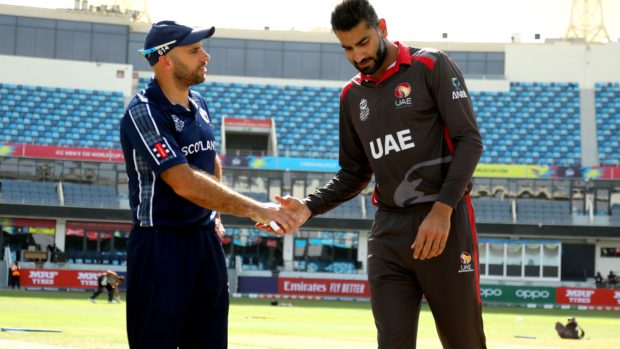It’s perhaps understandable that many sporting bodies are excited by the return of competitive action after months in lockdown.
The pandemic, which has caused the cancellation or postponement of myriad global tournaments and high-profile events, including the 2020 Olympics, the European Football Championships and the Tour de France has been the catalyst for a massive human cost, both in the grievous toll of lives lost to Covid-19 and the dramatic transformation of the manner in which we go about our day-to-day existence.
In these circumstances, the resumption of such activities as horse racing, golf, tennis and elite football competitions across Europe from the Bundesliga to La Liga and the Premiership, has gained a hearty thumbs-up from the majority of supporters, even if they will have to wait months to actually attend another match or meeting.
Personally, I worry that some of these pursuits are being kick-started too soon, without proper consideration for the safety of the participants. There is no issue with two golfing buddies enjoying 18 holes at their local club if they are sensible about it. Or a pair of bowls aficionados sharing a green in the sunshine with social distancing.
Yet the astonishing scenes of mass gatherings of people which were beamed into our living rooms at the weekend highlighted the danger of people complacently believing they can go back to behaving the way they did six months ago.
In the broader scheme, it’s hardly surprising that the governing bodies are lining up a veritable plethora of events from August onwards.
There will be cricket Tests, a new football season in Scotland and England, a packed programme of Grand Prix races, rugby internationals and other top-level sporting fixtures as pursuits which have lost millions of pounds attempt to recoup their losses.
But this again seems to be a triumph of chasing big bucks rather than authorities accepting the world has changed and admitting they need to respond with constructive ways of preparing for the future from the grassroots up to the highest level.
Just consider cricket, for instance, whose players are still awaiting the green flag from the politicians to return to the crease with the longest day lerss than three weeks away.
What we can predict is that the ICC T20 World Cup, planned for Australia in October and November, will not go ahead as scheduled in 2020, which will be a body blow to Associate teams such as Scotland, The Netherlands and Oman.
Yet what’s worse is the increasing prospect that the ICC will decide to stage the IPL later this year as a means of keeping the ‘Big Three” – India, England and Australia – happy without wondering what signal this sends out to the rest of the globe.
Frankly, it will be another inglorious chapter in recent cricket history, not least because the domestic season in all the developing countries has been obliterated. Without the T20 to offer crumbs of comfort to the Scots, the Dutch and other qualifiers, there seems to be nothing at all for the administrators in these countries to offer their players, their clubs or their fans.
That’s why the ICC needs to demonstrate true 20/20 vision. Even if it means switching the global tournament from Australia to Dubai and staging it behind closed doors, it would offer a showcase for millions of viewers from different continents and allow the emerging nations to lock horns with the established teams.
That is far better, surely, than the panjandrums pandering to the plutocrats of the IPL, and swelling the bank balances of a couple of hundred elite performers. This would be like FIFA cancelling the World Cup in favour of the Champions League.
There’s no doubt that sport revolves around the excellence of Lionel Messi and Cristiano Ronaldo, Roger Federer and Rafael Nadal, Ben Stokes and Virat Kohli and Tiger Woods and Rory McIlroy.
But all these stellar luminaries had to begin somewhere. And when there is the chance for underdogs to meet and beat giants – such as when Kyle Coetzer’s side shocked England at the Grange two years ago this month – it can be an almighty inspiration for youngsters to pick up a bat and ball and decide to try the game for themselves.
It might not be the biggest priority at the moment, but sport is important is boosting spirits and improving our fitness and mental wellbeing. As are the coaches and clubs who carry out dedicated missionary work behind the scenes.
It is not and never should be just about the stars. Let’s hope that message is heeded by those who are amply rewarded to provide proper governance!
